 THE LOVE HATERS |
|

Two vicious murders, only hours apart
A Detective Kubu Mystery #2 Read Kindle PreviewNormally a peaceful wilderness retreat, the Jackalberry bush camp has suddenly become a ghastly crime scene—and the details are still emerging when Detective David "Kubu" Bengu is assigned to the case. Zimbabwean teacher Goodluck Tinubu and another tourist have been found bludgeoned to death, while another guest at the camp—rumored to be a dissident wanted in Zimbabwe—has disappeared without a trace. With the local police unable—or unwilling—to provide much assistance, Detective Kubu relies on his own instincts to track down those responsible for the crimes. But a startling piece of forensic evidence from Goodluck Tinubu's murder adds a complicated twist to the investigation, and Kubu must work fast to solve a seemingly impossible riddle before any more Jackalberry guests meet their death. Suspecting that everyone at the camp has something to hide, the wily detective from Gaborone sets a clever trap to find the truth. The memorable Kubu of A Carrion Death returns in this gripping story of murder, greed, and hidden motives. Set in northern Botswana, amid lush vegetation and teeming wildlife, The Second Death of Goodluck Tinubu captures the intense loyalties and struggles taking place at the country's borders—and the shattered dreams of those living just outside this modern democracy. Excerpt The farewells had been said many years ago, so Goodluck hugged his old comrade and left without a word. He zipped the tent door closed and started along the path to his own bush tent. The waning half-moon had risen; he was glad he did not need his flashlight. Goodluck came to a fork. Straight ahead the path led past the center of Jackalberry Camp to the guest tents on the other side. The right branch turned up a small hill to a view of the lagoon. It was a spectacular spot at sunrise, popular with early risers. Now it would be deserted, and on a whim he climbed the short distance. The moon silvered the lagoon, making him think of the great river that downstream defined his homeland. One day he hoped to end his self-imposed exile and return with dignity. He heard a noise—rustling leaves? But there was no wind. Despite the many years since the war, his bush-craft took over, and he faded into the thick brush with no hint of shadow or silhouette. A moment later a man appeared, walking along the main path almost silently. He seemed to be looking for something. Or for someone. He glanced up the path to the lookout, hesitated, but then continued straight. From Goodluck’s position in the thicket he couldn’t see the man well, but his face was black, and he was heavily built. As he moved the moonlight caught white sneakers. Goodluck sucked in his breath, let the man pass, and then followed soundlessly. Shortly afterwards the man turned off towards the main area of the camp. Goodluck was puzzled. Was it coincidence, or had he been followed? If so, for what reason? Arriving at his tent, he saw flickering light within. He had left the storm lantern alight on the bedside table. Suspicious now, he peered around the edge of the fly-screen window so that someone inside wouldn’t be able to see him. But the tent was empty. Everything seemed exactly as he had left it. Satisfied, he entered, zipped the flap door closed, and got ready for bed. He was tired and still tense, but long ago he had learned to sleep quickly and deeply, even under threat. About two hours later he was wakened by the sound of the door zipper. In his war days he would have been instantly alert, but he awoke momentarily confused and blinded by the beam of a strong flashlight, and it took him a few seconds to react. That was much too long. *** The next morning the camp staff went about their business as usual. The cook lit the wood stove, clattered about with his pans, and chatted to his pet bird. The cleaner, Beauty, helped her husband Solomon set up for breakfast. The wooden tables, clustered under two ancient jackalberry trees, needed to be wiped down, spread with tablecloths, and laid. Then Beauty would clean the central camp area and, after that, would get to the tents of the guests who were up and about. By habit, she would start with the one furthest to the east and work back towards the main camp area. The outdoor dining area overlooked Botswana’s Linyanti River to a hazy Namibia on the far side. It was a mesmerizing expanse of water, lilies, papyrus, and reeds. Hundreds of birds hugged the water’s edge, sometimes rising in flocks, other times lunging to catch unwary fish or multicolored tree frogs. Across the water, six majestic fish eagles perched in a tree, occasionally shrieking their haunting cry. Black egrets in abundance, darters and cormorants, jacanas, black crakes, and pied kingfishers hovering above the water. In the trees nearby, cheeky drongos imitated other birds, weaverbirds flew to and fro selecting grass to thread into their intricate nests, and clouds of red-billed quelea occasionally obscured the sun. Across one of the channels, four large crocodiles lazed on the white sand, pretending to be asleep, but cannily watching for prey through nearly closed eyes. Further downstream, in a deeper pool, the ears of several hippos twitched, their noses barely breaking the water for air. Terrapin swam across the calm water and climbed onto hippo backs to sunbathe. A few hundred yards to the right of the dining area, three mokoros, coarsely hewn from the trunks of sausage trees, were pulled up on the grassy bank between acacia bushes. Another glided silently across the shallows towards the bank. A white man with a sun-burned face sheltering under a floppy hat, binoculars slung around his neck, perched on a pile of dry reeds in the front of the boat and scribbled notes in a spiral-bound notebook protected by a waterproof cover. At the back, a man, past middle age but wiry, with a sweat-stained shirt, stood propelling the mokoro with a long pole. When the mokoro reached the water’s edge, William Boardman wobbled to the front and jumped ashore. After thanking Enoch, the poler, he walked over to the outdoor dining area and joined his wife, Amanda, who had already started breakfast. “Good morning, dear,” he said brightly, putting his hand affectionately on her shoulder. He was rewarded with a warm smile. “I saw a finfoot and a malachite kingfisher this morning. Enoch saw the finfoot a hundred meters away. He’s a great spotter! We must get him to take us out this afternoon.” He leaned forward and whispered, “I also chatted to him about getting curios. Dupie’s been a bit slack on getting decent stock recently. Maybe Enoch can help us out.” A few moments later the cook, Suthani Moremi, wandered from the kitchen tent to ask William for his order. As always, on his shoulder Moremi sported a large, gray, crested bird with a long tail—a common go-away-bird. Each visit, the Boardmans enjoyed a private joke involving the bird. William always insisted that since it was indigenous and not caged, they could add it to their bird list. Amanda pointed out that it was obviously tame—and so, ineligible. Fortunately fate inevitably intervened as wild go-away-birds would descend on nearby fig trees to enjoy the fruit. Over the years, the Boardmans had developed a soft spot for Kweh, who made frequent sorties onto their table at meals patiently waiting for a treat. His inquisitive eyes and cocked, crested head made him irresistible. Kweh was Moremi’s best friend. The cook constantly spoke to him, sharing observations and asking advice. “Do you think we should serve mango with the fish or just lemons?” Or “I think that everyone has had enough dessert. Or should I make some more pancakes?” For his part, Kweh appeared to listen intently, sometimes squawking an answer, sometimes nibbling Moremi’s ear. Occasionally, if disturbed, Kweh would let out a raucous shriek that sounded like a shrill “go away.” The call also sounded like “kweh,” so that became the bird’s name. At the table next to the Boardmans, a black man sat alone, working his way through three fried eggs, bacon, sausage, and chips. He wore sunglasses, jeans, and a Hawaiian shirt complete with palm trees at sunset. Sun spots danced across his tablecloth, reflections from a heavy gold chain hanging around his neck. With a nod he acknowledged William as he sat down. William wondered why this man had chosen Jackalberry Camp for his holiday. He did not seem interested in birds, declining yesterday afternoon’s motorboat trip up the river. But after a few drinks he became the life and soul of the party, even outdoing Dupie. William had discreetly asked Dupie about the man. His name was Boy Gomwe, his South African passport well used throughout southern Africa. He had given his profession as salesman. Vaguely, William wondered whether the other three black guests had already finished breakfast. But the expectant tables suggested otherwise. Had they gone for a walk together? Up to now they had not seemed particularly friendly. Trying to be affable, William asked Gomwe if he had enjoyed the morning so far. The man shrugged. “Slept late.” “There were wonderful birdcalls at sunrise,” offered Amanda. “I’m really only interested in birds I can eat,” said Gomwe. “Let me tell you a story about eating birds.” The voice came from a heavily tanned man with a straggly gray beard and hair to match. He wore an old khaki shirt, patched in several places. His shorts, made from canvas, sagged down to his knees. Brown knee-length socks disappeared into worn leather boots. Everyone knew him as Dupie. Few people even knew his real name was Morné du Pisanie. He was solid and strong and had a stomach that protruded dramatically. It was a sight to behold—the result of thousands of liters of beer. The best view was from the side, which allowed for the proportions of his belly to be properly appreciated. He walked from the kitchen tent, glass of mango juice in hand, and sat heavily on a chair at Gomwe’s table. One leg of the chair sunk several inches into the ground, causing the onlookers to wonder hopefully if it might tip over as had happened the previous evening after dinner. “When I was in the Scouts,” Dupie began, wriggling to find a comfortable position in his chair. “When I was in the Scouts,” he repeated, looking around at Amanda and William. “That’s the Selous Scouts, not the bunch of cute boys who wear uniforms, collect badges, and sleep together.” He winked at Gomwe. “Well, anyway …” But Dupie was never to finish his story. He was interrupted by a piercing scream that catapulted dozens of birds skywards. The scream came from behind the kitchen. The three guests leaped up, looking around anxiously. A second scream. Dupie lumbered into the kitchen, returning with a heavy stick. Before he could head towards the sleeping area, Beauty appeared, running, stumbling, hands to her mouth. “He dead,” she whimpered. “Someone kill him. Blood all over his throat. Ears gone! He dead!” She threw herself into Dupie’s arms and burst into tears. “Who’s dead, Beauty?” Dupie asked, patting her on the back. “What did you see?” “In Kingfisher tent. Dead man. Murdered!” Her body shook. “Get her some water,” Dupie said, passing Beauty to Moremi, who had emerged from the kitchen. “No, hot tea would be better. I’ll be right back.” He ran surprisingly quickly into the reception tent, emerging seconds later with a rifle in hand, an old bolt-action Lee-Enfield .303, probably World War I surplus. He headed towards the last in the line of well-separated tents, perhaps three hundred yards from the reception area, rifle at the ready. When he reached Kingfisher tent, panting, he brushed one flap aside with the rifle barrel and glanced in. Immediately he shouted, “Enoch! Quickly! Come here!” As he closed the tent flaps, zipping them from top to bottom, the Munro sisters ran up from their tent. “What on earth’s going on, Dupie?” asked Trish. “We heard somebody screaming,” said Judith, clutching her sister’s arm. Dupie ushered them down the path to the silent group in the dining area. “He’s dead. Looks as though someone slit his throat,” Dupie told them. “Who’s dead?” William demanded. “It’s Goodluck. Goodluck Tinubu.” “Maybe he’s not dead. I’ve had first-aid training,” William said. “Let me take a look.” “He’s dead all right,” Dupie responded. “No one goes into that tent but the police. I’ll call them now. Enoch, you stay outside and guard the body.” He handed the rifle to Enoch, who nodded and set off towards Goodluck’s tent. “Are you sure it’s Goodluck?” Gomwe asked. Dupie nodded. “Seems his name wasn’t very appropriate.” Gomwe shook his head. “Seems not. I think I’ll go to my tent.” William stopped him. “We’d better stick together till the police come. We don’t know if the killer is still around.” Gomwe began to protest, but then shrugged, collapsed back into his chair, and retreated behind his sunglasses. “Oh God, was he murdered?” Amanda asked, then blushed as everyone looked at her incredulously. “Difficult to cut your own throat,” said William. Beauty started to cry again, clinging to her husband, Solomon. She calmed down when she got her tea, dutifully delivered by Moremi. Now he stood, Kweh on his shoulder, clutching a carving knife in his right hand and muttering to himself. “Where’s Langa? And Zondo?” asked William. “Dupie took Rra Zondo to airstrip early this morning,” Solomon said. “He said Rra Zondo had emergency at home.” William looked surprised. “But …” he began, but Gomwe interrupted. “What about Langa? Has anyone seen him this morning? Was he at breakfast?” “He didn’t come to breakfast,” Solomon said. “He didn’t come to breakfast!” Moremi stabbed with his knife toward the neatly set table. Amanda gave a small scream, and Solomon remonstrated with the cook in Setswana, banishing him to his kitchen domain. Moremi left muttering under his breath. Kweh, however, objected and flapped noisily around Moremi’s head. “Langa,” Gomwe reminded. “We should check his tent.” “We won’t. I will!” Dupie said, returning from the reception tent. At that moment, a woman, anxious and flustered, ran up to the group. “Oh God, what’s happened?” She was tall, with hair sun-yellowed rather than blond, done up in a bun; her arms bare and brown. She wore a khaki top and slacks to below the knee. Tanned and scratched legs ended in worn, flat sandals. Her face, safe from the Botswana sun thanks to a straw hat, looked younger than her forty-three years. Worry now lined it. “What’s happened?” she repeated. For a moment no one said anything, then Dupie told her. “One of our guests is dead, Salome. Goodluck Tinubu. Someone cut his throat. And we’re not sure where Sipho Langa is.” Salome shook her head. “Murdered? What are we going to do?” “I’ve already contacted the police. They should be here in a couple of hours if they can get a plane. Otherwise it’ll take all day.” Dupie put his hand on Salome’s arm. “Take the guests to the bar. Drinks are on the house. I’ll be there in a few minutes. I’m going to check Langa’s tent.” William watched Dupie walk off, thoughtful. Then he put his arm around Amanda’s shoulders. “Are you all right, darling? I guess I could handle a stiff brandy at that.” Start Reading THE SECOND DEATH OF GOODLUCK TINUBU NowDetective Kubu

Our Past Week of Fresh Picks
There are no rules this cruel summer…“I think we should see other people…” That one sentence unravels Samantha Parker&rsquo Read More »
THE DEATH MASK From #1 New York Times bestselling author Iris Johansen comes a new thriller starring Eve Duncan as she races against time to protect her beloved Read More »
Set in the art world of 1970s London, The English Masterpiece is a fast-paced read to the end, full of glamour and Read More »
Detective Arkady Renko—“one of the most compelling figures in modern fiction” (USA TODAY)—returns in this tense thriller set amid Read More »
Eat Post Like is a heartwarming debut novel of self-discovery, resilience, and the transformative power of food.Cassie Brooks has her life all Read More »
In this million-copy international bestseller from Korea, the owner of a corner store takes in an unhoused man who does a good deed, a Read More »
From NYT bestselling author Rachel Gillig comes the next big romantasy sensation, a gothic, mist-cloaked tale of a young prophetess forced Read More »
It’s twice as hot in this extra steamy Christmas in July two-in-one cowritten by #1 New York Times bestselling Read More » |
|
| |||
|
||||




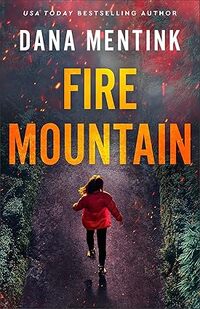




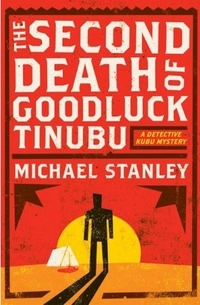

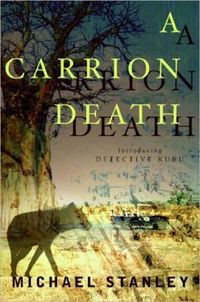
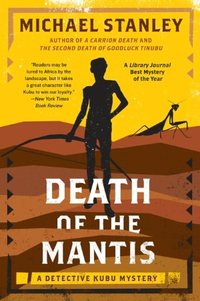
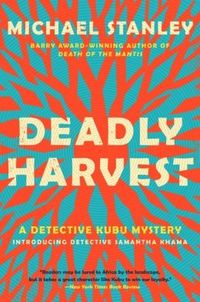
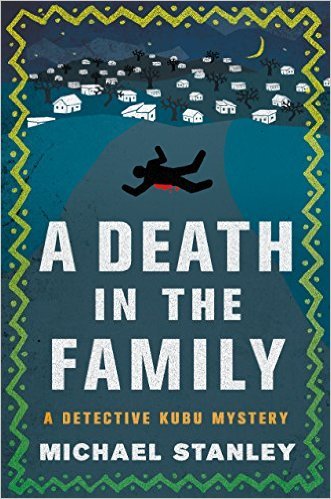

 Stepping out of your comfort zone could hold many surprises
Stepping out of your comfort zone could hold many surprises



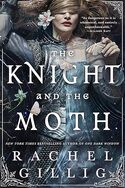
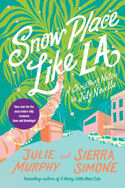
 © 2003-2025
© 2003-2025